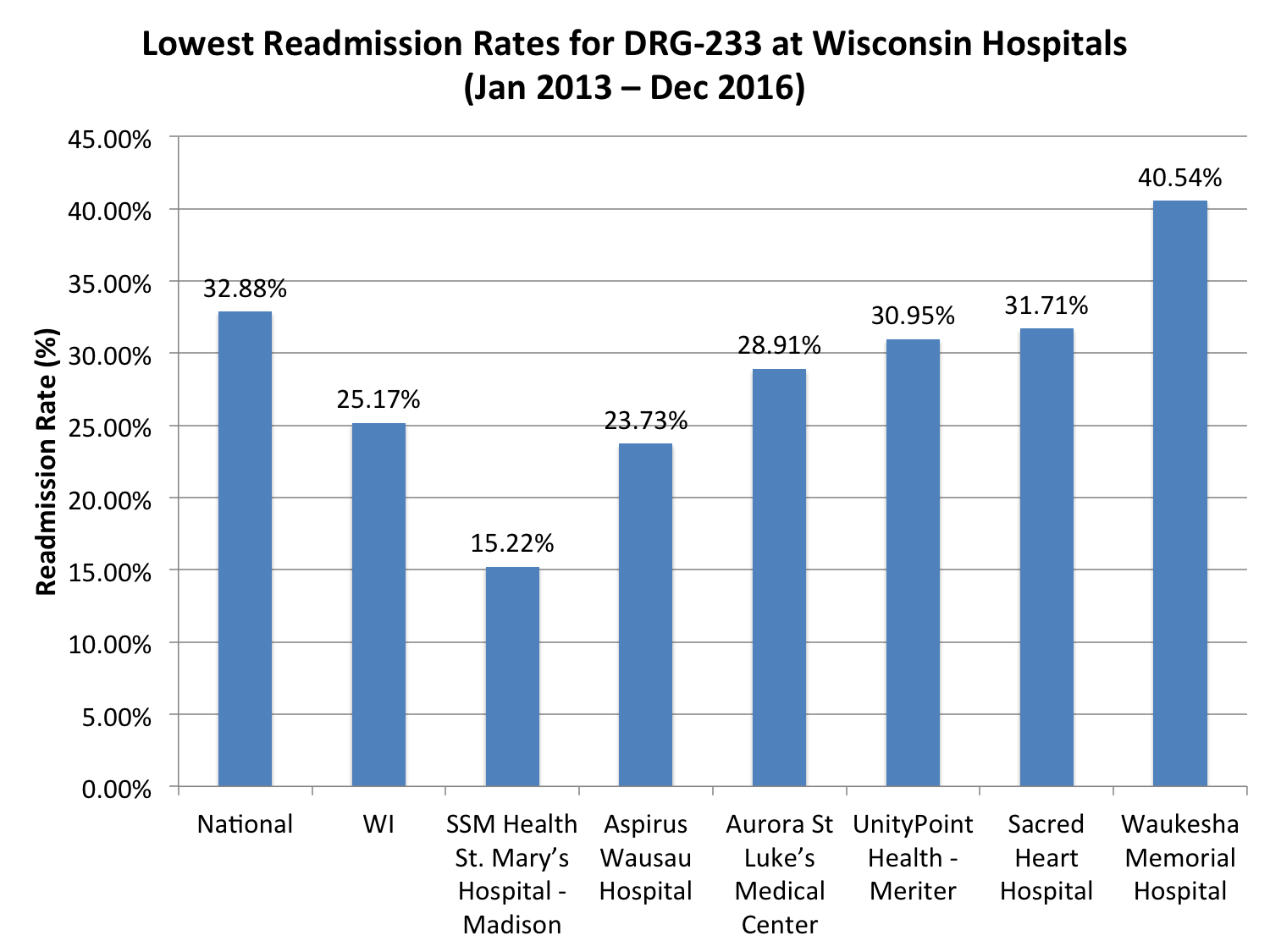Only 15.22% of Coronary Bypass Medicare Patients Treated at SSM Health St. Mary’s Hospital - Madison were Readmitted, the Lowest Rate in the State
Get Dexur’s Personalized Hospital Specific Presentation on Quality, Safety, Compliance & Education
By: Saparja Nag Feb. 12, 2018
An analysis conducted by Dexur on Medicare patients who underwent coronary bypass procedures at Wisconsin hospitals determined that SSM Health St. Mary’s Hospital had the lowest 30-day readmission rate in the state at 15.22%. It was one of only two major hospitals in Wisconsin with a 30-day readmission rate below the state average of 25.17% for DRG-233 (coronary bypass with cardiac catheterization with major complication or comorbidity). Readmission rate reduction has recently been targeted by hospital quality professionals as a way of improving the care patients receive. A background on readmission rate reduction can be read here.

The analysis was performed on Wisconsin hospitals that had greater than 3,500 total Medicare inpatients and at least 11 discharges on the DRG-level in 2016. The entire data pool was collected from January 2013 through December 2016. For this particular DRG, 6 hospitals were incorporated in the analysis. Five of these hospitals had readmission rates below the national standard of 32.88%: SSM Health St. Mary’s Hospital - Madison, Aspirus Wausau Hospital, Aurora St. Luke’s Medical Center, UnityPoint Health - Meriter, and Sacred Heart Hospital. Two of these hospitals were located in Madison, the state’s capital.
SSM Health St. Mary’s Hospital - Madison had a particularly low readmission of 15.22%, about 10% lower than the state average and less than half of the national readmission rate. They have extensive cardiac facilities that may contribute to low readmission rates for coronary bypass with cardiac catheterization. These facilities include the cardiac cath lab, cardiac rehabilitation programs, and coronary artery bypass grafting (CABG).
ABOUT THE AUTHOR
